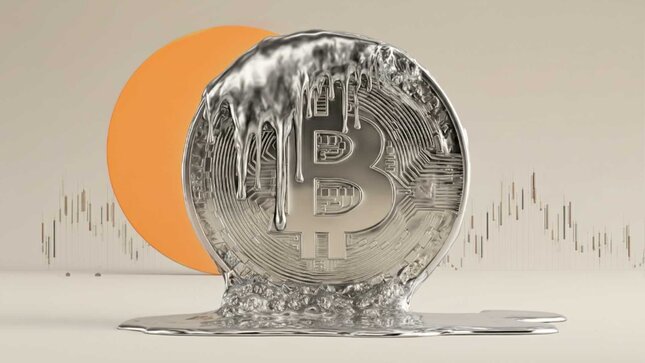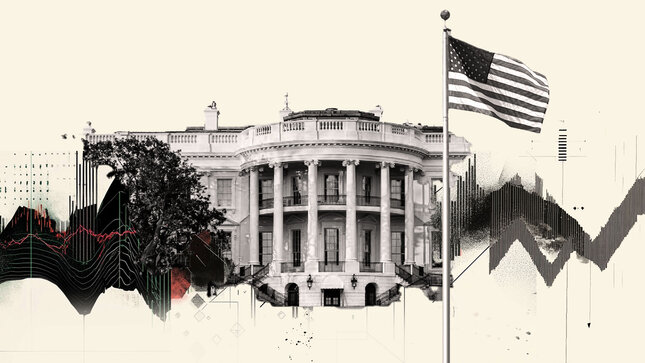The European Markets in Financial Instruments Directive (MiFID) and the General Data Protection Regulation (GDPR) are two initiatives designed to bring European markets into alignment. But, could the two initiatives be pulling in different directions?
MiFID – or in its latest form - MiFID II, is a European directive that is intended to harmonize the varied investment companies that exist across the 31 states of the European Economic Area, including three non-EU states, Norway, Iceland, and Liechtenstein. The original plan was to level the playing ground, making the financial markets fairer for the end users who power those markets.
The GDPR is a further European edict that is fully and wholly concerned with the fair use of consumer data. Its motivation is to give the control of financial and personal data back into the hands of the persons who own that data. Questions arise concerning what data is being collected, who owns it, who will have access to it, and how can privacy and protection be insured.
Recently, there has been a concern that MiFID2 and the GDPR may actually be pulling in different directions. While MiFID is promoting greater transparency and visibility, GDPR is trying to make data management more tightly controlled and monitored. There seems to be a conflict between openness and privacy at play here. So, is that really the case?
One misunderstanding about GDPR is that far from restricting access to customer data, it is only interested in setting up rules and standards about how customer information can be shared. The main drive of the directive is to ensure strong data security, while enforcing that data is only seen by those persons and organizations entitled to see it.
And MiFID2 and GDPR aren’t paper tigers. No, they can bite. Potential fines up to 4% of a company’s global annual revenue wait for those who choose to ignore these directives.
So, while MiFID2 and GDPR may attend to two individual aspects of Europe’s plans for financial market regulation, it seems reasonable to believe that these are two sides of the same coin. And if financial organizations are going to avoid punitive charges, they will have to step into line and follow the new rules. However, there are steps that financial institutions can take to make the journey a little easier.
First, you must define your company’s data plan, which involves the accurate mapping of your clients’ information. Data is like quicksilver—without control, it just gets everywhere. Customer and financial data ends up on network drives, servers, external hard drives, and USB drives. Without tight data control, information can be difficult to find, or at worst, lost. The electronic nature of data used in banks and brokerage houses makes it easy to transfer and receive, but it is equally easy to lose it, or send it to the wrong place. The current solution to such data management challenges is to provide clients with access to their data via secure web servers. Clients are supplied with password-controlled access to their data, which they obtain as they require it.
Next, financial organizations must put procedures in place to manage those occasions when things go wrong. This can be events associated with human error and mismanagement - from employees taking data home on laptops, to events involving cyber-attacks of a company’s servers or networks. Customers should be assured that the companies to which they have entrusted their assets can be trusted to know what to do during a crisis.
Finally, financial institutions must train their staff, making them aware of data security issues, from within the company and without. Key to the success of this training is the appointment of an experienced and responsible Data Protection Officer (DPO) whose job it is to make sure the company abides by the European compliance rules and report any aberrations to senior management. The DPO must be highly trained and up-to-date with financial data technology, as well as being the go-to person who maintains the company’s crisis mitigation plan.
MiFID2 came into force on July 2014, and GDPR will go live on May 25, 2018. The two directives will ensure that European investors will be fairly treated when trading in the international financial markets. And to back up that activity, they can also rest assured that their financial and personal information is available and secure.
All essays, research and information found above represent the analysis and opinion of Leverate only. As such it may prove wrong and be a subject to change without notice. Opinions and analysis were based on data available to the author of the respective essays at the time of writing. Although the information provided above is based on careful research and sources that are believed to be accurate, Leverate does not guarantee the accuracy or thoroughness of the data or information reported. The opinions published above are neither an offer nor a recommendation to purchase or sell any securities. Leverate is not a Registered Securities Advisor. By reading Leverate’s reports you fully agree that they will not be held responsible or liable for any decisions you make regarding any information provided in these reports. Investment trading and speculation in any financial markets may involve risk of loss.e risk of loss.
Editors’ Picks

EUR/USD: Yes, the US economy is resilient – No, that won’t save the US Dollar Premium
Some impressive US data should have resulted in a much stronger USD. Well, it didn’t happen. The EUR/USD pair closed a third consecutive week little changed, a handful of pips above the 1.1800 mark.

Gold: Metals remain vulnerable to broad market mood Premium
Gold (XAU/USD) started the week on a bullish note and climbed above $5,000 before declining sharply and erasing its weekly gains on Thursday, only to recover heading into the weekend.

GBP/USD: Pound Sterling remains below 1.3700 ahead of UK inflation test Premium
The Pound Sterling (GBP) failed to resist at higher levels against the US Dollar (USD), but buyers held their ground amid a US data-busy blockbuster week.

Bitcoin: BTC bears aren’t done yet
Bitcoin (BTC) price slips below $67,000 at the time of writing on Friday, remaining under pressure and extending losses of nearly 5% so far this week.

US Dollar: Big in Japan Premium
The US Dollar (USD) resumed its yearly downtrend this week, slipping back to two-week troughs just to bounce back a tad in the second half of the week.
RECOMMENDED LESSONS
Making money in forex is easy if you know how the bankers trade!
I’m often mystified in my educational forex articles why so many traders struggle to make consistent money out of forex trading. The answer has more to do with what they don’t know than what they do know. After working in investment banks for 20 years many of which were as a Chief trader its second knowledge how to extract cash out of the market.
5 Forex News Events You Need To Know
In the fast moving world of currency markets where huge moves can seemingly come from nowhere, it is extremely important for new traders to learn about the various economic indicators and forex news events and releases that shape the markets. Indeed, quickly getting a handle on which data to look out for, what it means, and how to trade it can see new traders quickly become far more profitable and sets up the road to long term success.
Top 10 Chart Patterns Every Trader Should Know
Chart patterns are one of the most effective trading tools for a trader. They are pure price-action, and form on the basis of underlying buying and selling pressure. Chart patterns have a proven track-record, and traders use them to identify continuation or reversal signals, to open positions and identify price targets.
7 Ways to Avoid Forex Scams
The forex industry is recently seeing more and more scams. Here are 7 ways to avoid losing your money in such scams: Forex scams are becoming frequent. Michael Greenberg reports on luxurious expenses, including a submarine bought from the money taken from forex traders. Here’s another report of a forex fraud. So, how can we avoid falling in such forex scams?
What Are the 10 Fatal Mistakes Traders Make
Trading is exciting. Trading is hard. Trading is extremely hard. Some say that it takes more than 10,000 hours to master. Others believe that trading is the way to quick riches. They might be both wrong. What is important to know that no matter how experienced you are, mistakes will be part of the trading process.
The challenge: Timing the market and trader psychology
Successful trading often comes down to timing – entering and exiting trades at the right moments. Yet timing the market is notoriously difficult, largely because human psychology can derail even the best plans. Two powerful emotions in particular – fear and greed – tend to drive trading decisions off course.


